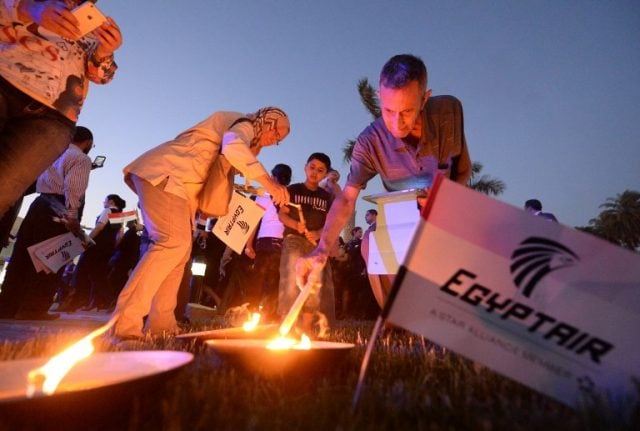The Airbus A320 plane crashed into the Mediterranean with 66 people on board during a May 19 flight from Paris to Cairo, after disappearing from radar screens.
Investigators are in a race against time to find the flight recorders, known as the black boxes, which have enough battery power to emit signals for four or five weeks.
The recordings could help investigators determine the reason for the crash.
The plane was carrying passengers from different nationalities, with 40 Egyptians including the crew and 15 French nationals.
Egypt's aviation minister had initially said a terrorist attack was more likely to have brought down the plane, but a technical failure is also likely.
France's aviation safety agency has said the aircraft transmitted automated messages indicating smoke in the cabin and a fault in the flight control unit minutes before losing contact.
Egypt and France have signed agreements with two French companies specialising in deep water searches, Alseamar and Deep Ocean Search (DOS).
“Those two companies have complementary roles: the first is for locating the pings of the black boxes (the signal being emitted by the black boxes' beacon), while the second is for diving and recovering them” with the help of a robot, a source close to the investigation told AFP in Cairo, requesting anonymity.
“But the DOS specialised ship left the Irish sea Saturday and it will reach the perceived crash site only in around 12 days, after having the Egyptian and French investigators embark in Alexandria,” the source added.
The investigation into the crash is led by an Egyptian-headed committee.
Other sources close to the investigation confirmed the information.
The investigators are searching for the black boxes at a depth of around 3,000 metres (around 10,000 feet), some 290 kilometres (180 miles) north of the Egyptian coast.
Three of Alseamar's DETECTOR-6000 acoustic detection systems, which submerged can detect pings for up to 4,000 to 5,000 metres below sea level, have left the French island of Corsica to the crash site Thursday onboard “Laplace”, a French navy ship.
It will arrive at the perceived crash site “Sunday, or Monday at the latest,” according to one of the sources.
“While we are waiting for the DOS ship, equipped for detecting the pings in deep waters, but more importantly the robots capable of descending up to 6,000 metres to recover the black boxes, we will not be wasting time as Leplace will be trying to locate them in the meantime,” said one of the sources.
The source added that after 12 days, “there is a very good chance of recovering the flight recordings thanks to the combination of these two French companies.”
Two members of the French aviation safety agency BEA are on board Leplace.



 Please whitelist us to continue reading.
Please whitelist us to continue reading.